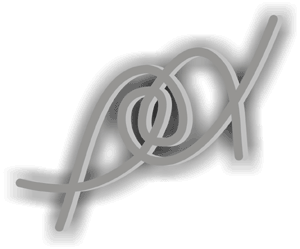Abstract
This article describes a learning experience with the aim at studying the complexity relationship between cognitive structures and school performances. Its graphic representation was made possible by using the Pathfinder Associative Networks technique and the GOLUCA software. This research involved 79 students with ages between 14 and 16 years old who attended the 9th grade of Portuguese schools. In a first approach, we identified the network that better represented the relations among the concepts in a geometry topic. Students did a knowledge test and a GOLUCA test before and after the topics were taught and, therefore, it was possible to analyze and compare the evolution of their cognitive structures having in mind their school performances. The results of our study suggest that this new approach may be part of an useful method to study and understand the conceptual networks of students during the process of learning Mathematics or other subjects’ topics, allowing the teacher to watch the students’ learning progress in a more complete way and consequently, accomplishing a better adequacy of tasks and teaching methods.
Keywords:
Theory of Nuclear Concepts; Cognitive Structure; Pathfinder Associative Networks; Complexity; GOLUCA

 Fonte:
Fonte:  Fonte:
Fonte:  Fonte: Elaborado pelos autores (2013).
Fonte: Elaborado pelos autores (2013).
 Fonte: Elaborado pelos autores (2013).
Fonte: Elaborado pelos autores (2013).
 Fonte:
Fonte:  Fonte:
Fonte:  Fonte:
Fonte:  Fonte: Elaborado pelos autores (2013)
Fonte: Elaborado pelos autores (2013)
 Fonte: Elaborado pelos autores (2013).
Fonte: Elaborado pelos autores (2013).